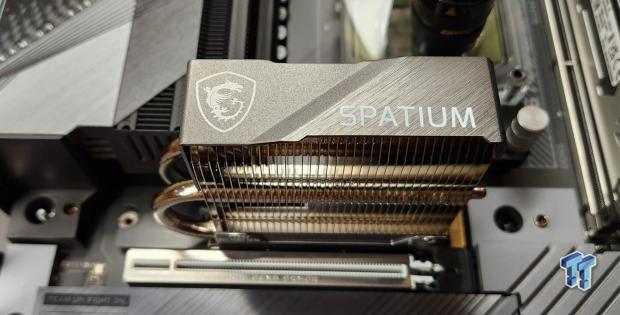
The Bottom Line
Pros
- + Gaming
- + Throughput
- + User experience
- + Cool running
Cons
- - None
Should you buy it?
AvoidConsiderShortlistBuyIntroduction & Drive Details
At the end of last year, we reviewed MSI's 12,000 MB/s capable Spatium M570 Pro FROZR Phison E26 controlled PCIe Gen5 SSD, which turned out to be the highest performing retail ready 2TB SSD we'd ever tested. At the time, what separated it from other 12,000 MB/s class SSDs, the likes of Corsair's MP700 Pro and TeamGroup's T-Force Z540 was its newer firmware, giving it roughly a 1,000-point advantage in user experience. All three of these SSDs feature identical hardware, being Phison E26 controlled and arrayed with 2,000 MT Micron B58R flash.
Fast forward to today, and MSI is again out in front of most of its competition with the launch of its final form 14,000 MB/s capable E26 controlled Spatium M580 FROZR. The M580 FROZR gains its throughput advantage over the older E26-controlled Spatium M570 Pro FROZR through faster 2,400 MT B58R flash. Now, this is not the first time we've seen this hardware configuration in retail form at the 4TB capacity point. That distinction belongs to Sabrent's 4TB Rocket 5 we reviewed two months ago. Both high-capacity heavyweight contenders feature identical hardware and firmware, so they deliver identical performance.
What separates one from the other is cooling. Sabrent leaves it to the end-user to provide adequate thermal mitigation, MSI supplies it. As we already know from our time spent with the M570 Pro FROZR, MSI's FROZR series Gen5 SSDs come with a custom heat-pipe tower cooler preinstalled. This passive cooler is very effective, as evidenced by the following screenshot:
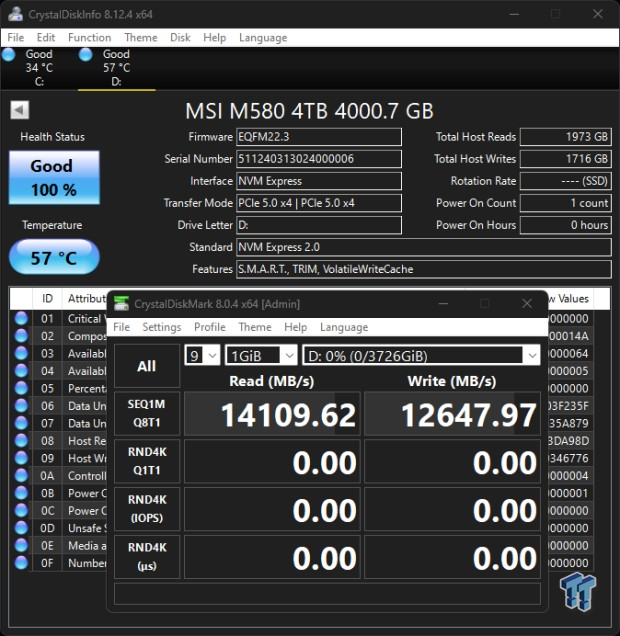
We ran three back-to-back iterations of CDM x9 sequentials, which is enough to push any inadequately cooled PCIe Gen5 SSD into thermal throttling, and our M580 FROZR ran silently cool at 57c max. Impressive.
2,400 MT B58R behind Phison's E26 controller is no doubt going to be another head turner, so let's dive right in and get some exact numbers for the newest member of MSI's SSD fleet.
Drive Details
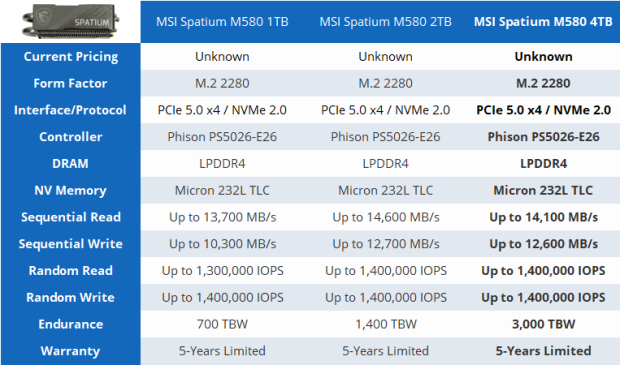
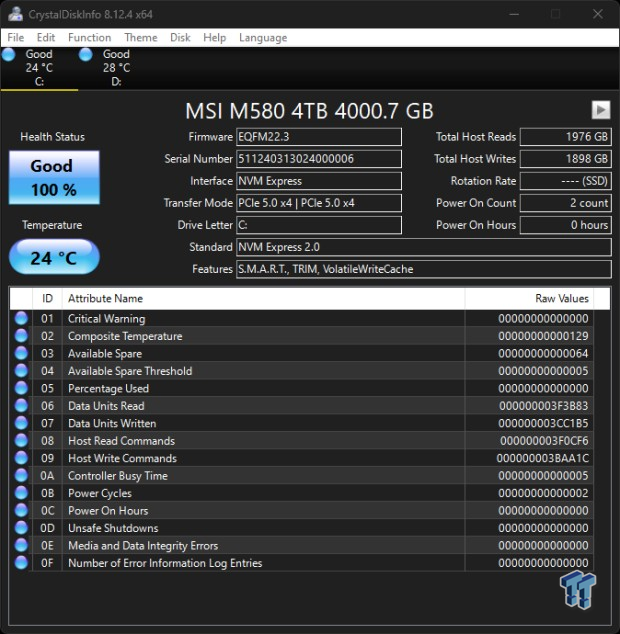
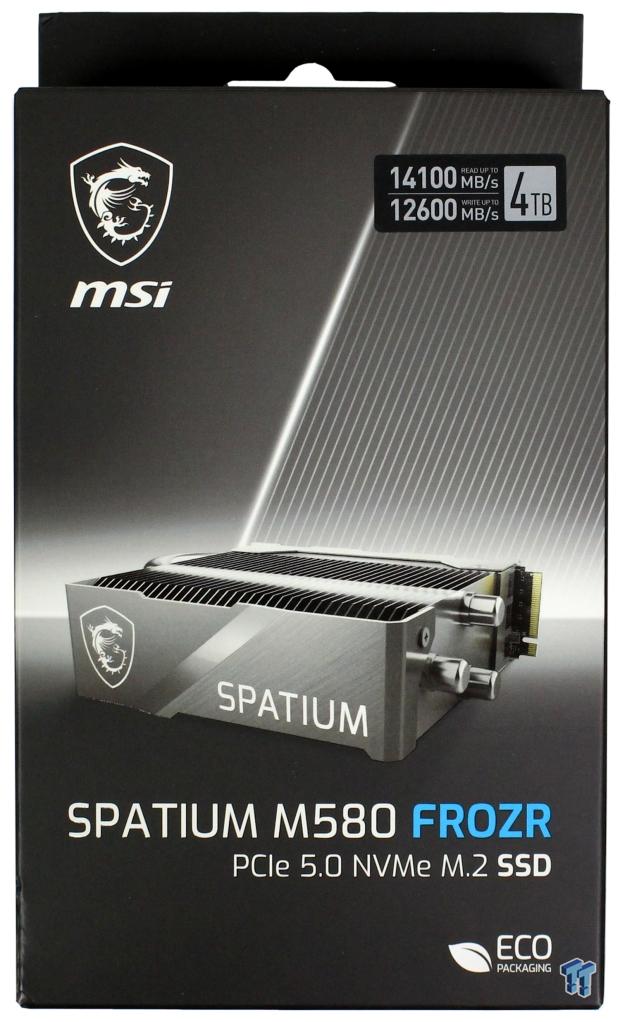
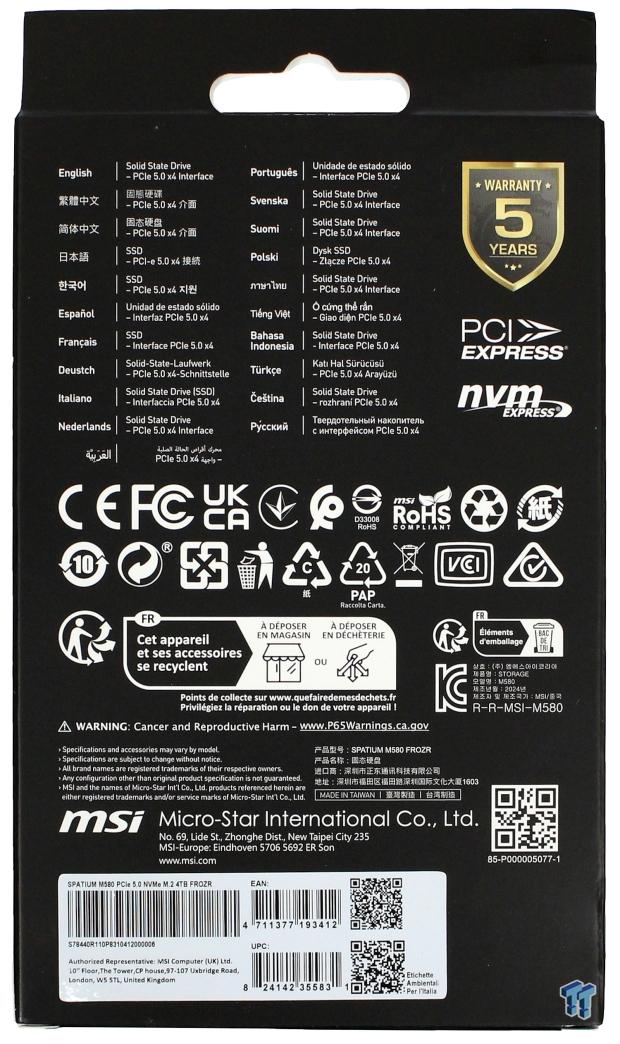
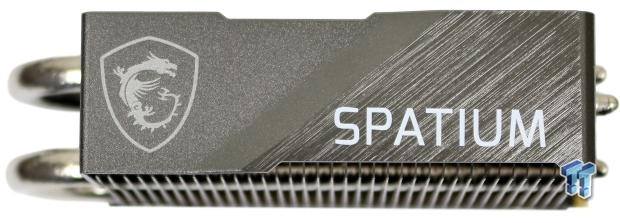
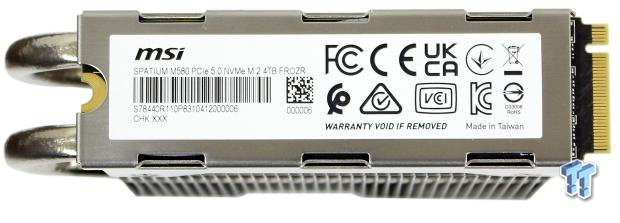
Jon's Test System Specifications
Intel Test System
- Motherboard: GIGABYTE AORUS Z790 Xtreme X
- CPU: Intel Core i9-14900K - Buy from Amazon
- Cooler: Alphacool Eissturm Hurricane Copper 45 - Buy from Amazon
- RAM: Patriot Viper Xtreme 5 8000 48GB - Buy from Amazon
- Graphics Card: MSI SUPRIM X RTX 3080 12GB - Buy from Amazon
- Case: PrimoChill's Praxis Wetbench - Buy from Amazon
- Power Supply: be quiet! Dark Power Pro 12 1200W - Buy from Amazon
- OS: Microsoft Windows 11 Pro 64-bit - Buy from Amazon
AMD Test System
- Motherboard: GIGABYTE X670E AORUS Master
- CPU: AMD Ryzen 9 7950X - Buy from Amazon
- Cooler: Alphacool Eissturm Hurricane Copper 45 - Buy from Amazon
- RAM: Sabrent Rocket DDR5 32GB - Buy from Amazon
- Graphics Card: MSI SUPRIM X RTX 3080 12GB - Buy from Amazon
- Case: PrimoChill's Praxis Wetbench - Buy from Amazon
- Power Supply: be quiet! Dark Power Pro 12 1200W - Buy from Amazon
- OS: Microsoft Windows 11 Pro 64-bit - Buy from Amazon
Because we at TweakTown like to be first at everything whenever we can, we will present our storage performance results for the test subject on both 14th Gen Intel and 7000 Series AMD platforms going forward for the foreseeable future. Because Intel still delivers the best real-world storage performance, (Look Here), our running chart will continue to be Intel-based until AMD can deliver better real-world storage performance than its rival.

Sony PlayStation 5 - M.2 Storage Expansion
PS5 Read Performance
With Sony's wildly popular PlayStation 5 console now enabled for M.2 NVMe SSDs to be used as fast storage expansion, we include results for PS5 compatible SSDs we test as a part of our reviews going forward.
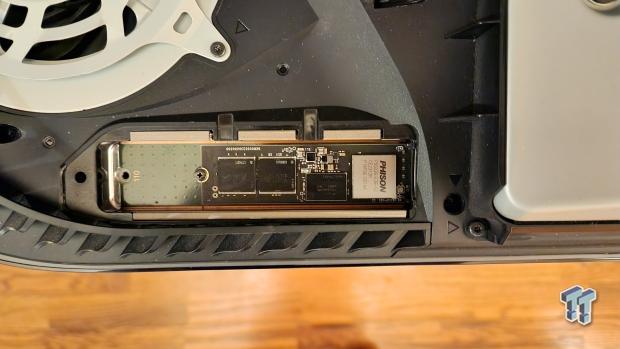
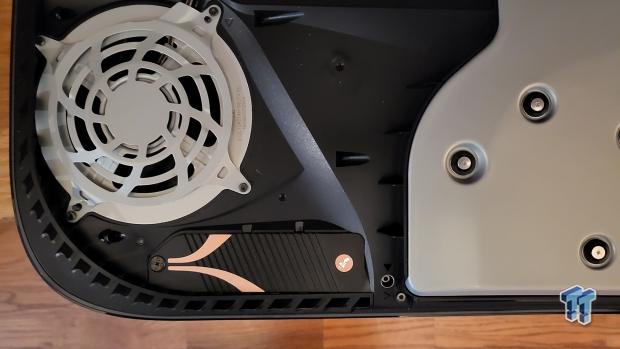
For SSDs that don't have an adequately sized PS5 compatible heatsink or other SSDs where the heatsink provided doesn't fit right and can be removed, we both use and recommend Sabrent's unparalleled PS5 heatsink available HERE.
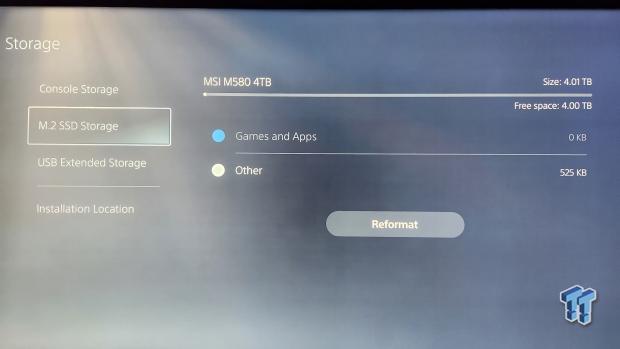
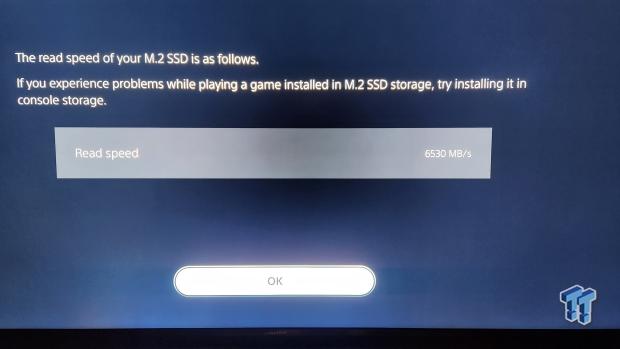
We only chart SSDs that can deliver a minimum of 5,500 MB/s read, which is Sony's original recommendation.
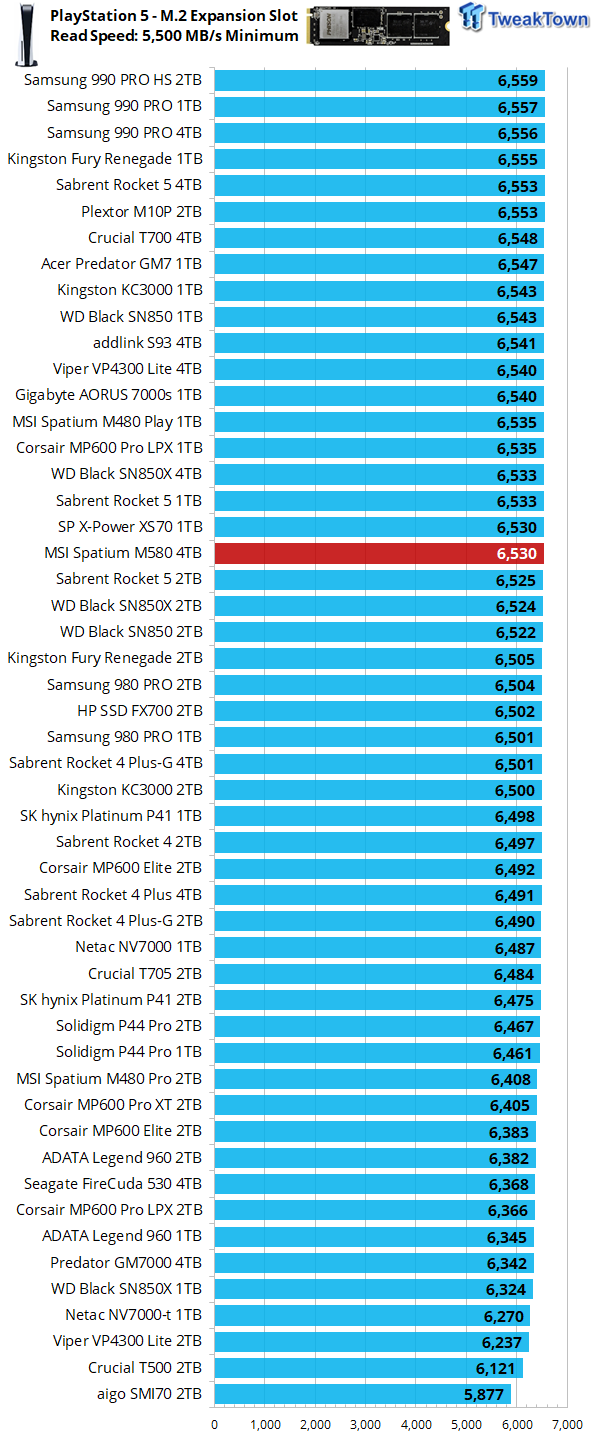
The M580 FROZR, with its preinstalled tower cooler, is obviously not intended for PS5 storage expansion, as you will void the warranty by removing the cooler, but that won't deter us from seeing what it can do anyway. 6,530 MB/s is right in there with the best of them, so it can serve brilliantly as PS5 storage expansion when used in conjunction with an aftermarket PS5 heatsink.
Synthetic Benchmarks: CDM, Anvil, ATTO
CrystalDiskMark
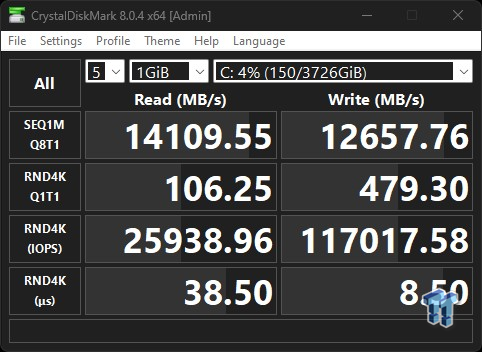
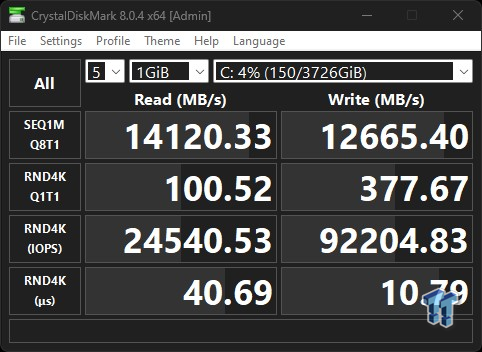
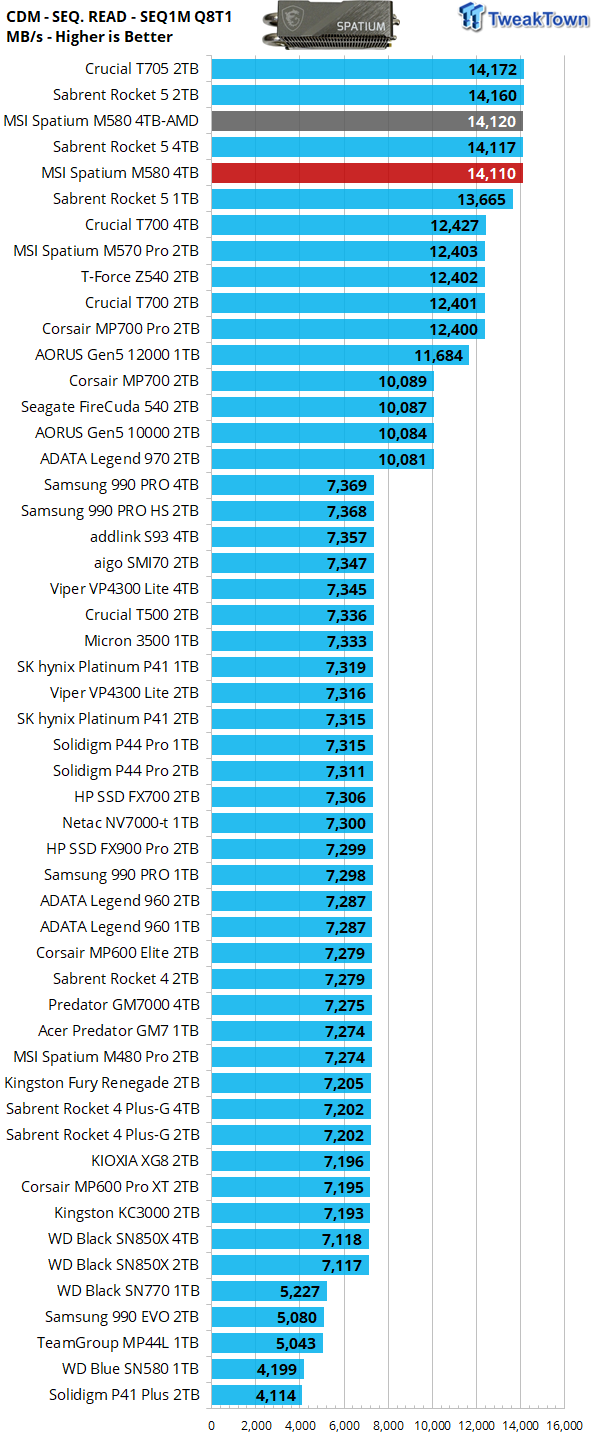
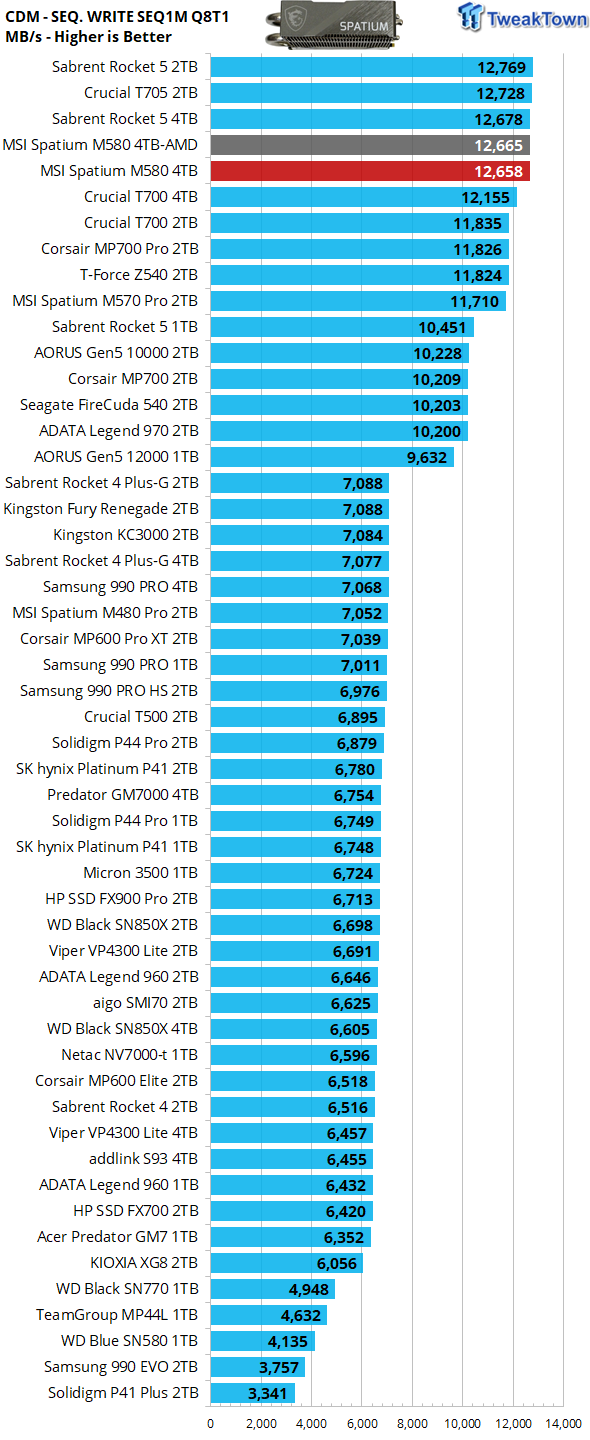
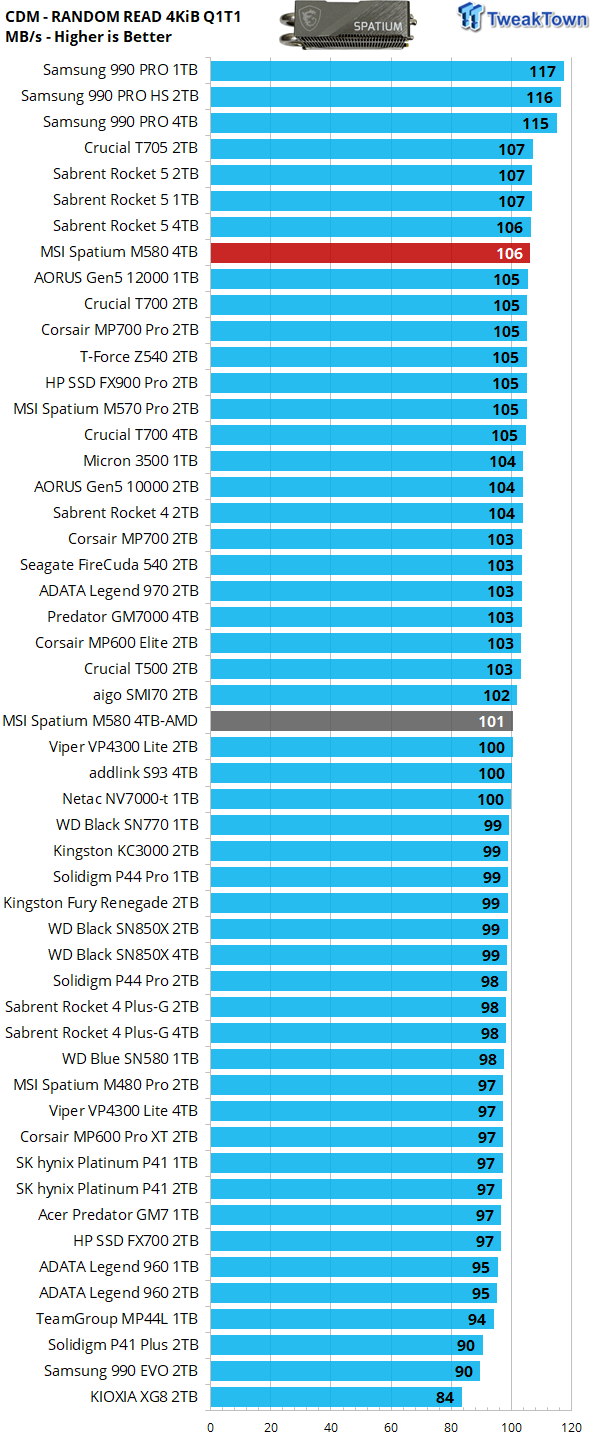
We employ CDM as our standard measurement for both sequential throughput and Q1T1 random read. In terms of sequential throughput, we find our test subject fully capable of meeting and or exceeding quoted up to factory throughput specifications. And with 106 MB/s 4K Q1T1 random read speed, our cool running 4TB speedster is sure to deliver astounding real-world performance.
Anvil's Storage Utilities
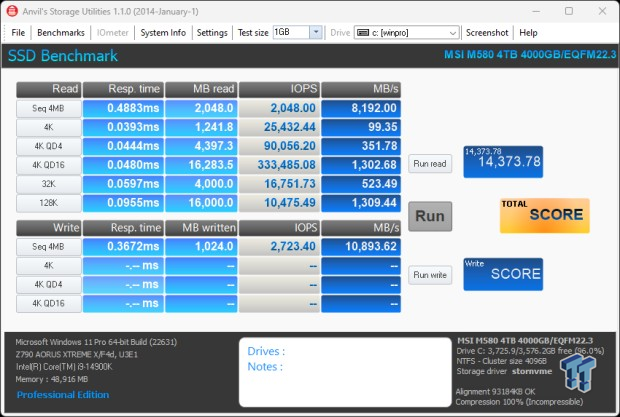
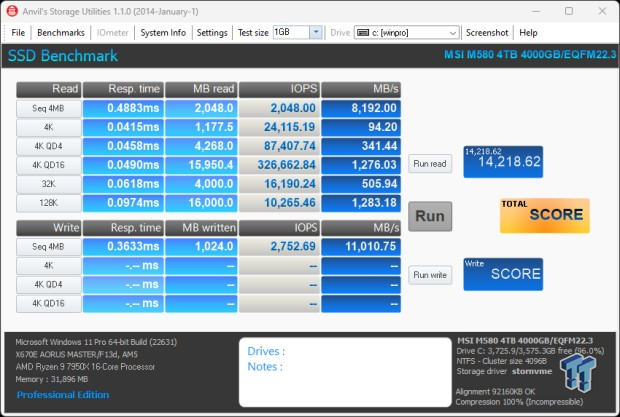
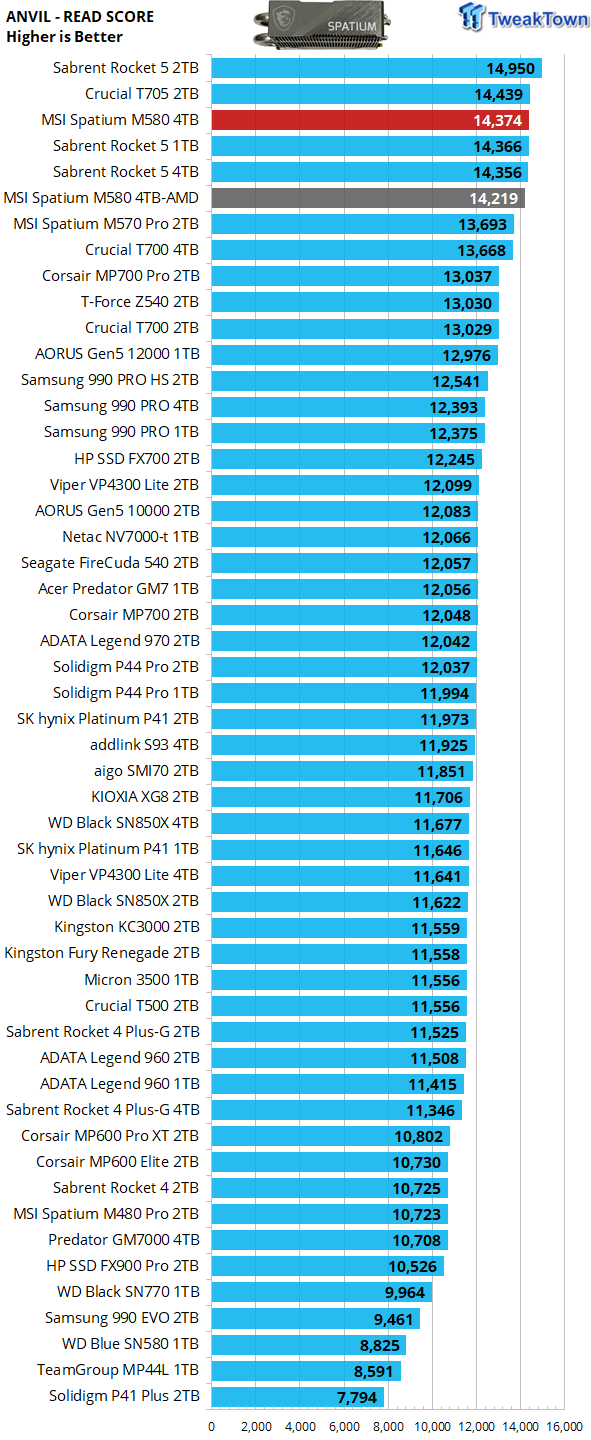
This time our test subject gets the better of Sabrent's 4TB Rocket 5, delivering a new 4TB lab record in the process. Excellent.
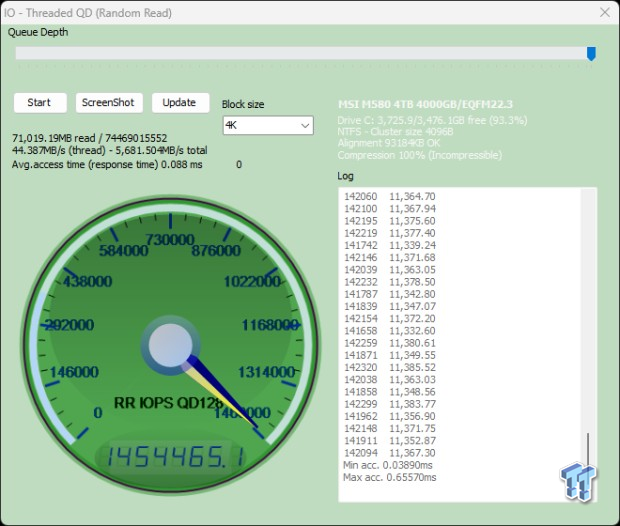
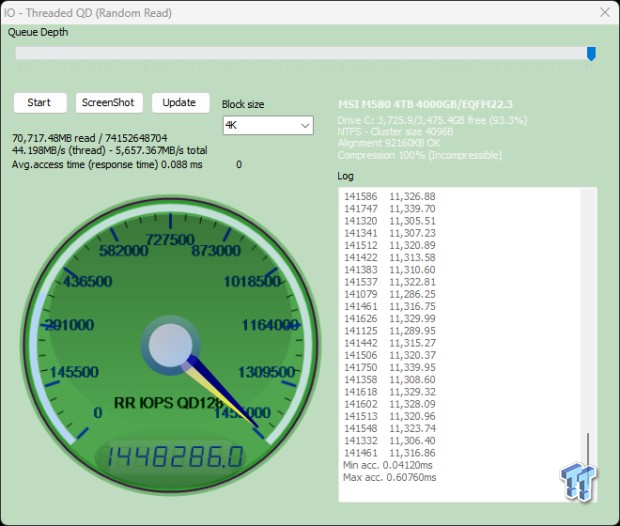
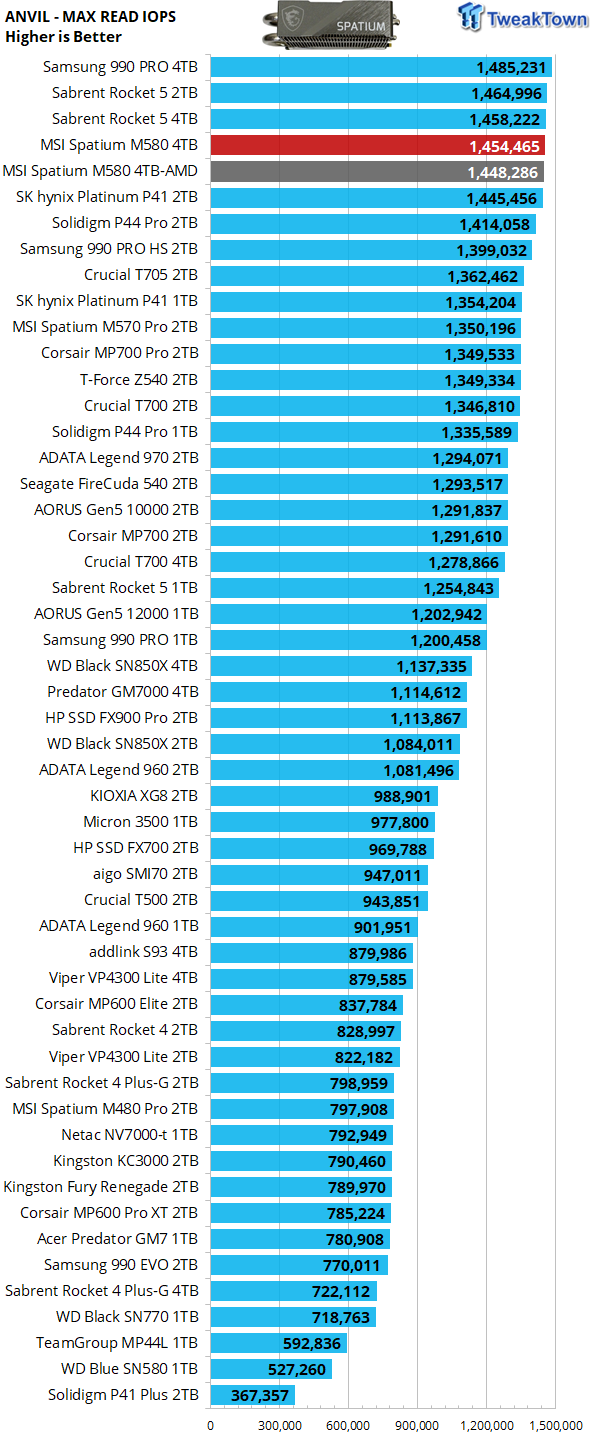
We employ Anvil's random read test as our standard for measuring max random read IOPS. This test is very accurate as it at its core is Iometer skinned over. We test at QD128. At 1.45 million RR IOPS, our capacious contender delivers massively as expected.
ATTO
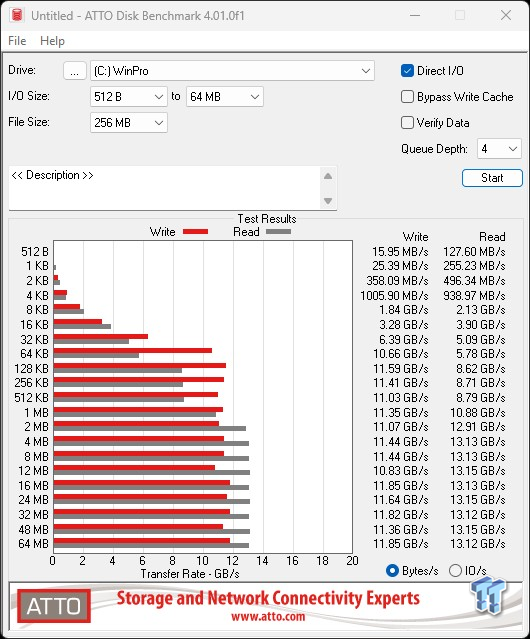
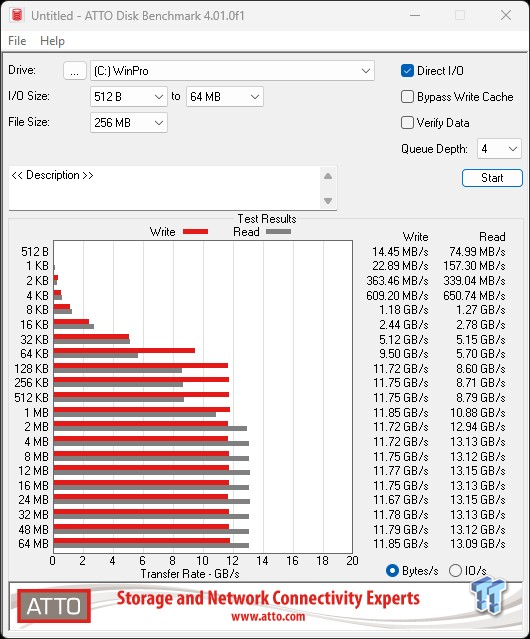
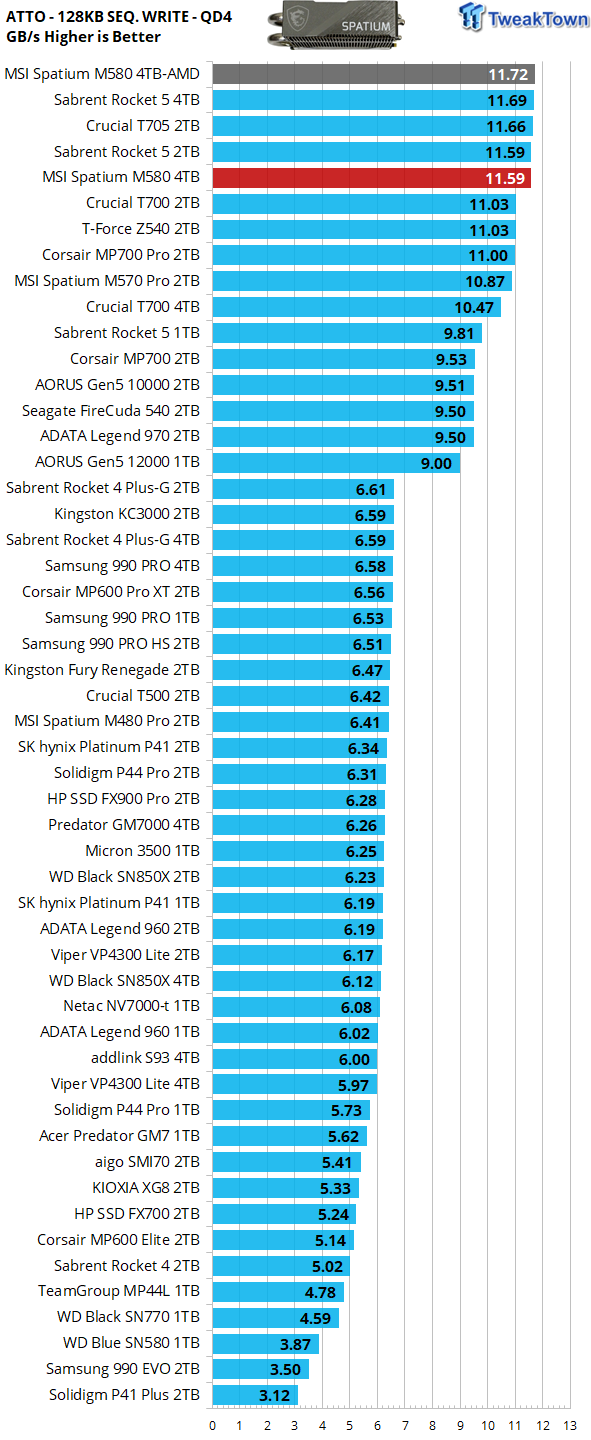
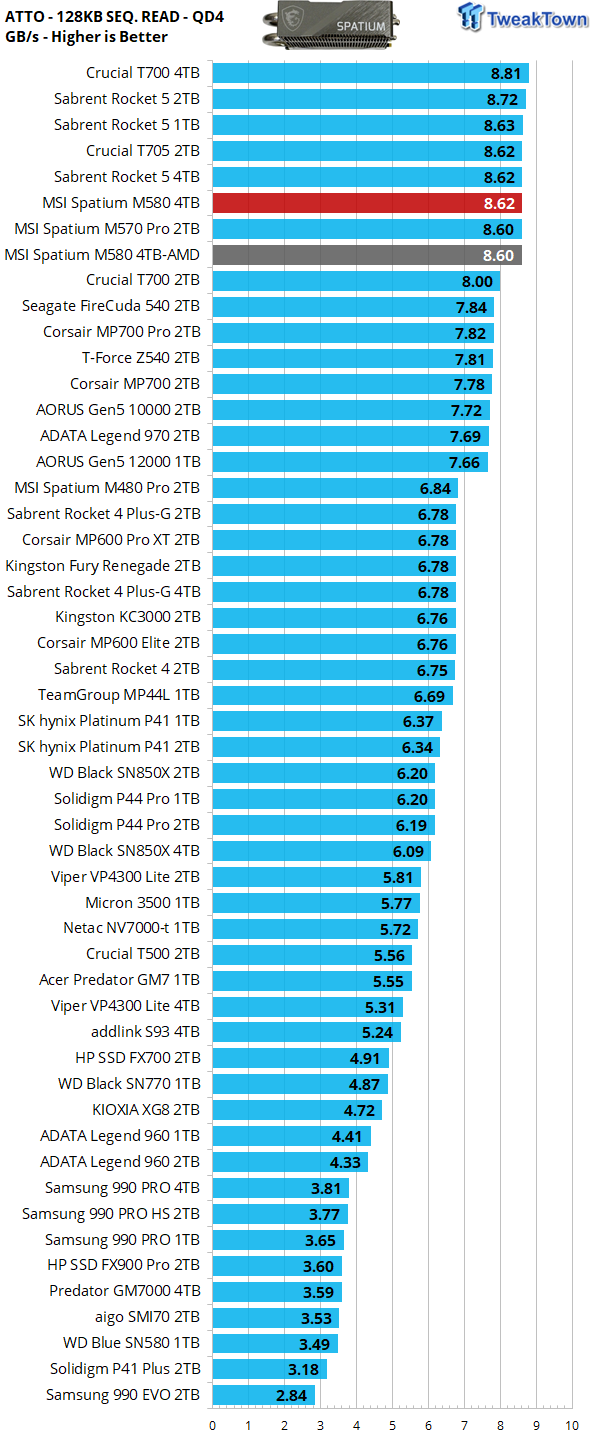
ATTO gives us a clear picture of what transfer sizes a particular SSD favors in terms of QD4 sequential throughput. We chart 128K transfers. At a queue depth of four, the Spatium M580 FROZR 4TB favors sequential transfers of 2MB or larger when serving data to the host (reading) and 128K or larger when programming (writing) data.
Real-World Testing: Transfers, 3DMark SSD Gaming Test, PCM10 Storage
Transfer Rates
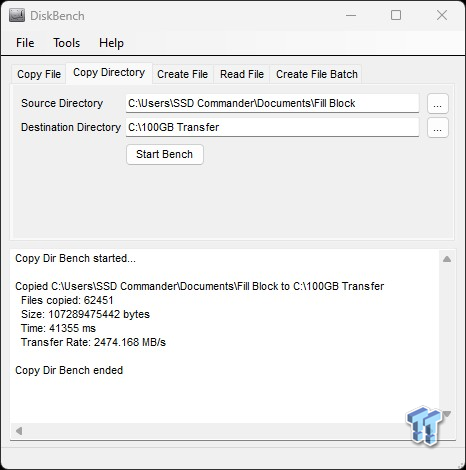
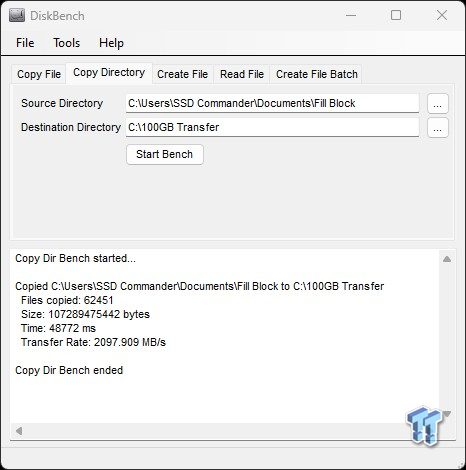
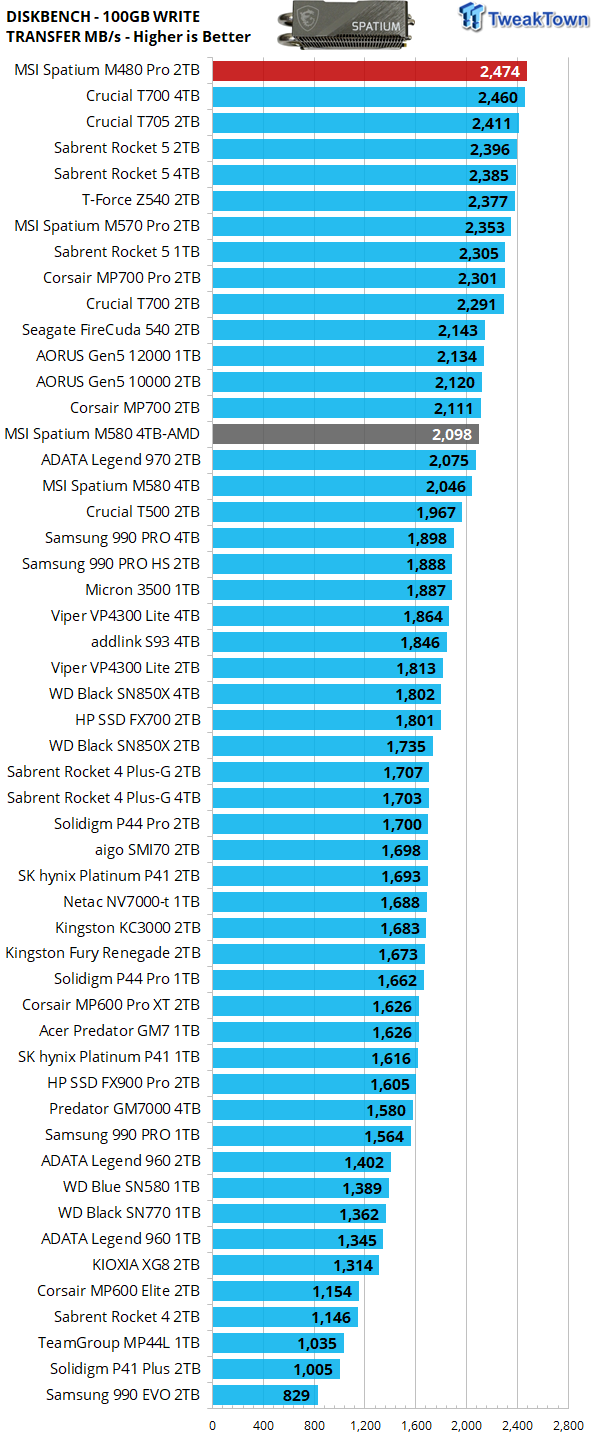
Our 100GB data transfer test is not your ordinary 100GB of data. Ours is a crushing mix composed of more than 62K files. Write performance, random or sequential, is an infrequent operation, and as such, we do not consider it to be an important performance metric in the consumer space. An example being how many times is a game installed vs. how many times it's played. Although not an important metric, we are nonetheless impressed by our contender delivering a new lab record here.
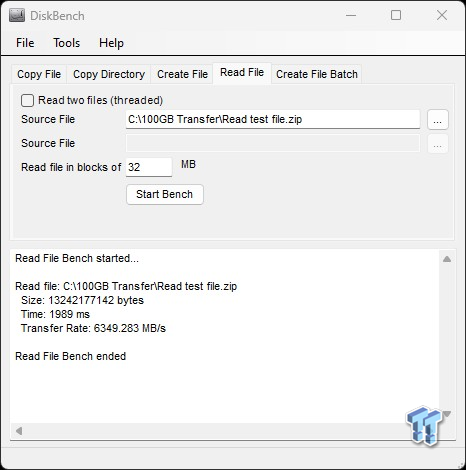
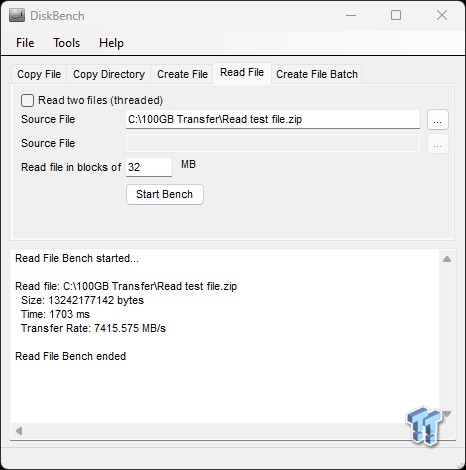
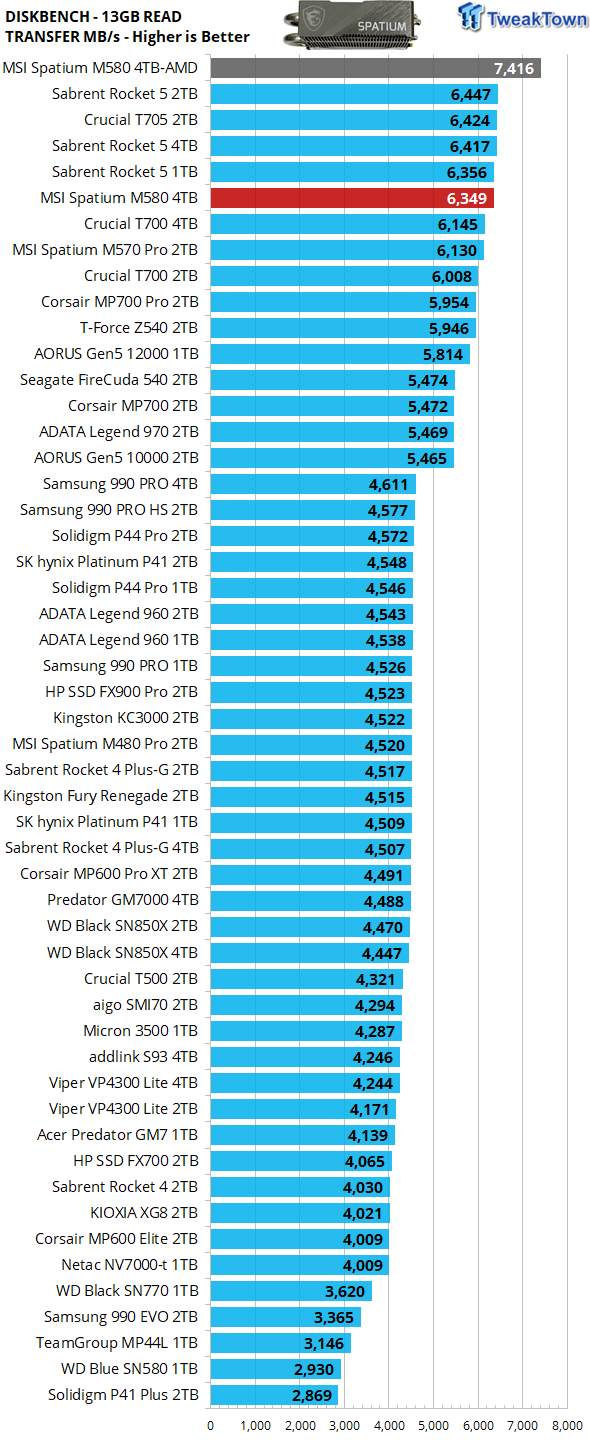
Unlike programming (writing) data, serving data to the host (reading) is always an important performance metric as it relates to the consumer space. Once again trading blows with the Rocket 5 4TB.
3DMark SSD Gaming Test
UL's newest 3DMark SSD Gaming Test is the most comprehensive SSD gaming test ever devised. We consider it superior to testing against games themselves because, as a trace, it is much more consistent than variations that will occur between runs on the actual game itself. This test is the same as running the actual game, just without the inconsistencies inherent to application testing. In short, we believe that this is the world's best way to test an SSD's gaming prowess and accurately compare it against competing SSDs. The 3DMark SSD Gaming Test measures and scores the following:
- Loading Battlefield V from launch to the main menu.
- Loading Call of Duty Black Ops 4 from launch to the main menu.
- Loading Overwatch from launch to the main menu.
- Recording a 1080p gameplay video at 60 FPS with OBS (Open Broadcaster Software) while playing Overwatch.
- Installing The Outer Worlds from the Epic Games Launcher.
- Saving game progress in The Outer Worlds.
- Copying the Steam folder for Counter-Strike Global Offensive from an external SSD to the system drive.
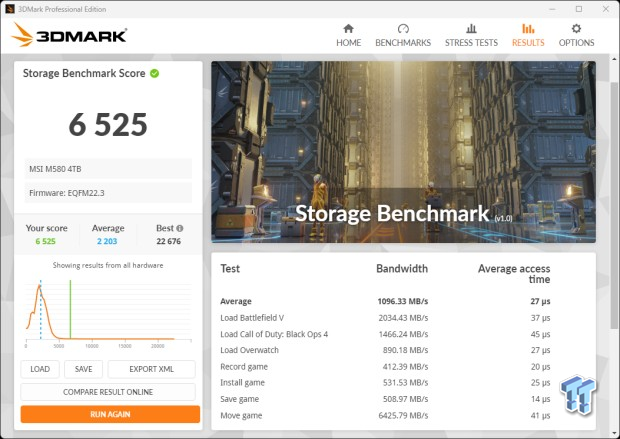
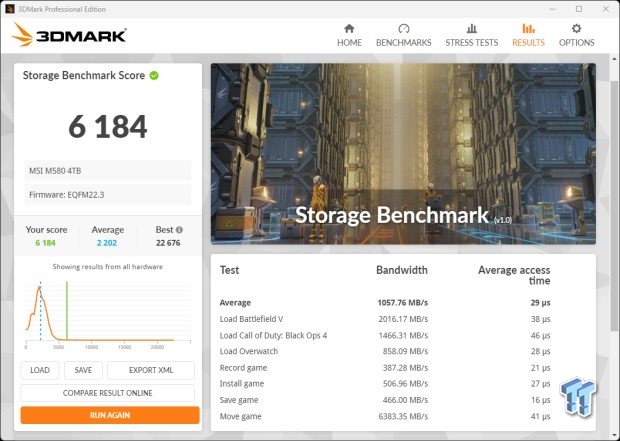
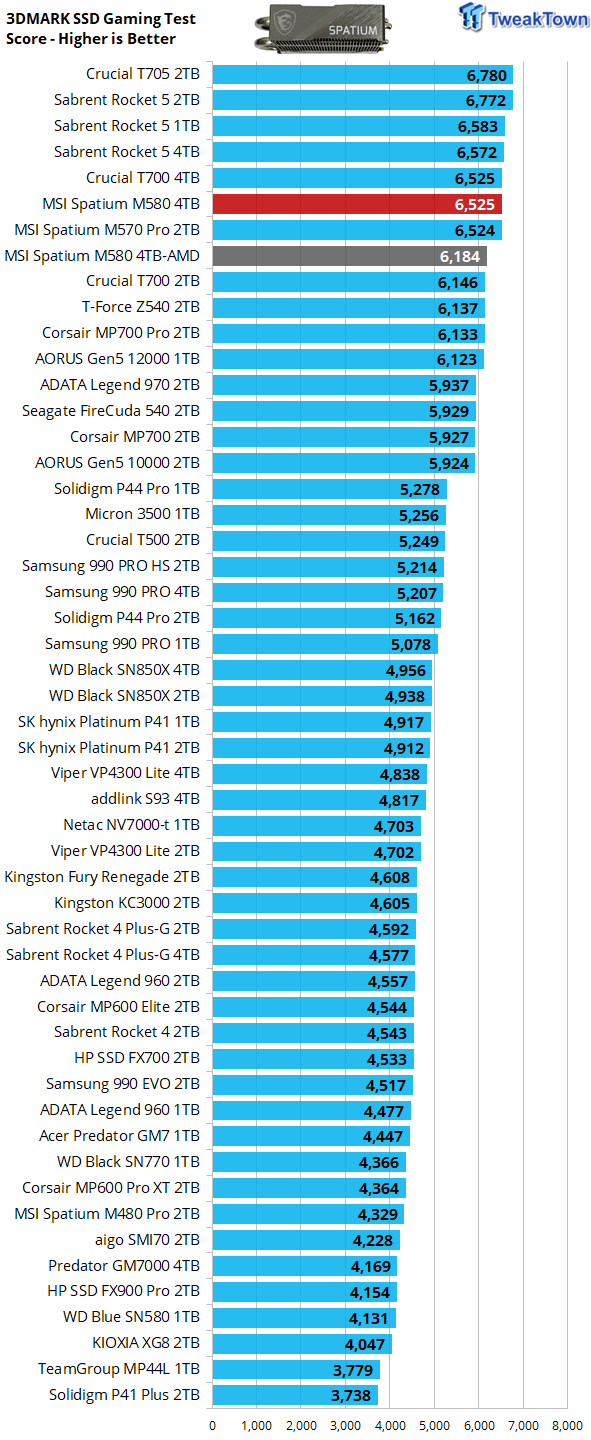
Gaming is a performance metric that matters to most DIY consumers, especially for the enthusiast crowd that TweakTown caters to. Now we've reached the point where results start to matter as they are a direct reflection of user experience. 6,500+ points here is the new standard in gaming performance. Additionally, and worthy of mention here is all E26 controlled SSDs come with Phison's exclusive I/O+ DirectStorage optimized technology baked right in. With it, a properly equipped PC can load up to 60% more gaming data with 99% less CPU utilization. This provides a high level of futureproofing for avid gamers.
PCM10 Storage Tests
PCMark 10 Storage Test is the most advanced and most accurate real-world consumer storage test ever made. There are four different tests you can choose from; we run two of them. The Full System Drive Benchmark and the Quick System Drive Benchmark. The Full System Drive Benchmark writes 204 GB of data over the duration of the test. These tests directly correlate with mainstream user experience.
PCMark 10 Full System Drive Benchmark
This test writes 204GB data and covers a broad range of common consumer tasks, including booting Windows 10, file transfers, Adobe and Office applications, and startup times for games including Battlefield V, COD Black Ops 4, and Overwatch. Unlike synthetic numbers, this is comprehensive real-world data which is why we use it to rank SSDs in terms of user experience.
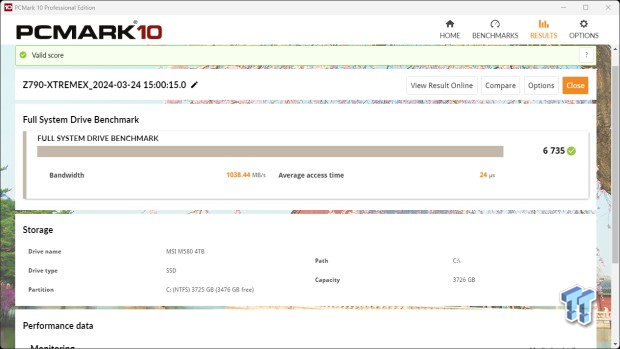
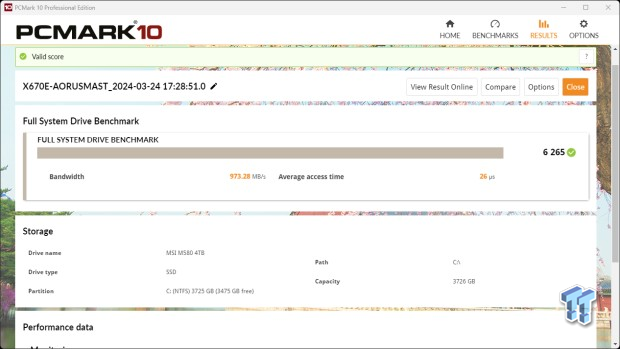
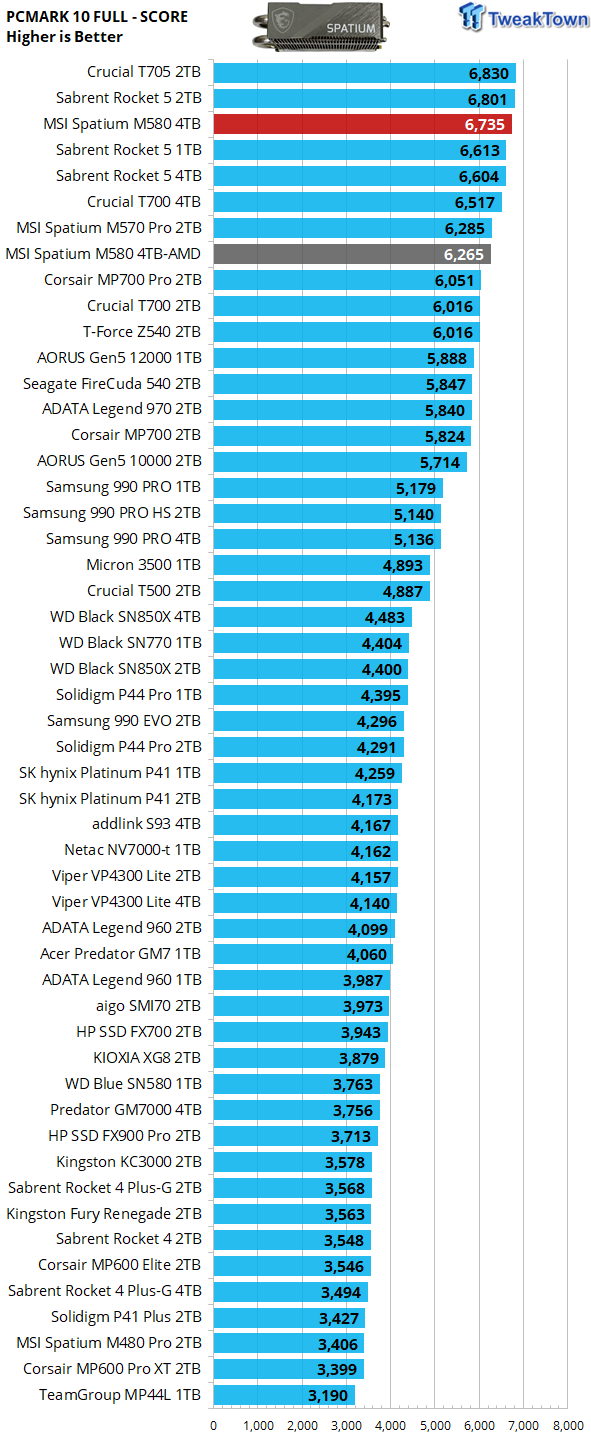
We consider a score of 6,500 or more here to be a milestone achievement, so a score exceeding 6,700 greatly exceeds our expectations, setting a new lab best for a 4TB SSD. Outstanding.
PCMark 10 Quick System Drive Benchmark
The Quick System Drive Benchmark writes 23 GB of data over the duration of the test.
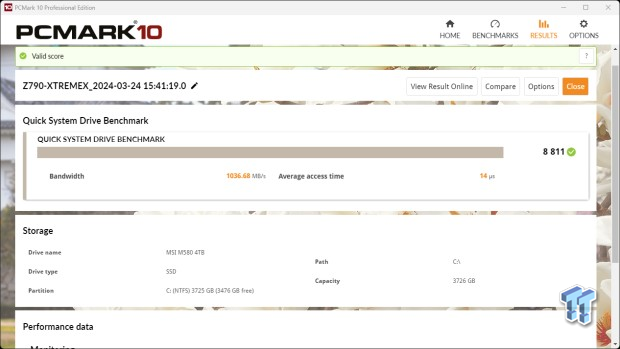
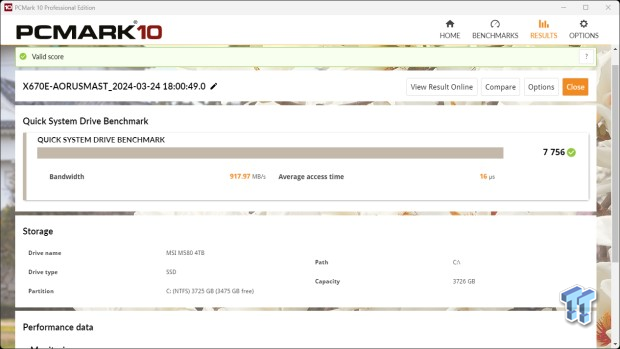
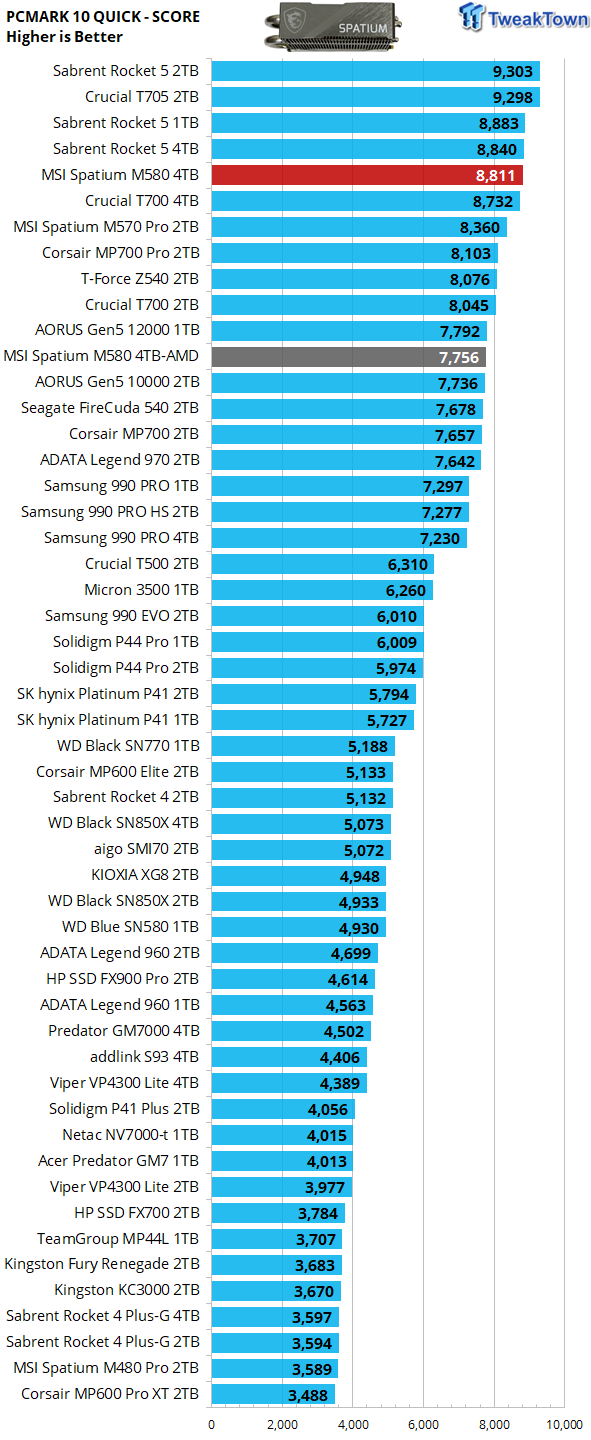
A score of 8,800+ here is exactly what we are looking for from a 4TB 14,000 MB/s capable SSD. This is performance where it matters most.
Final Thoughts
As it is for almost all E26-controlled SSDs, the difference between brands most often comes down to cooling methodology. Some are actively cooled, some, like today's test subject, are passively cooled, and some are sold as bare drives, leaving it to the end-user to provide adequate cooling. All three of these configurations have their inherent advantages, including pricing, cooling performance, noise, and lastly, PS5 storage expansion feasibility. Of all the different types of integrated cooling solutions we've seen to date, MSI's FROZR solution is the type we prefer most, simply because it is silent and highly effective, with no power cord to deal with.
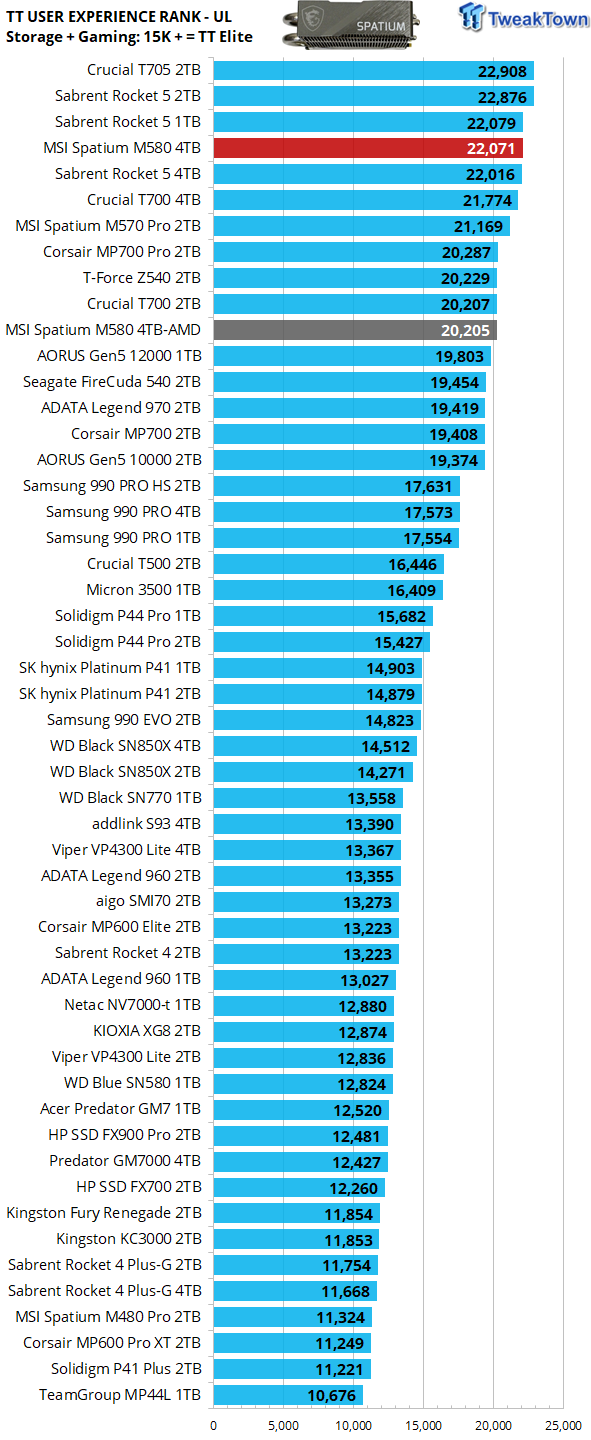
We rank SSDs in terms of overall user experience (performance where it matters most) as expressed by PCMark 10 storage and 3DMark gaming storage tests. Currently, we consider a user experience score of 15K or more to verify an SSD as a TweakTown Elite performer. A score of 22K is just over the top and currently is only attainable via hardware configurations featuring Phison's E26 controller and Micron's 2,400 MT B58R. Notably, our test subject delivers a new lab best for a 4TB SSD by just edging out Sabrent's Rocket 5 for the top spot.
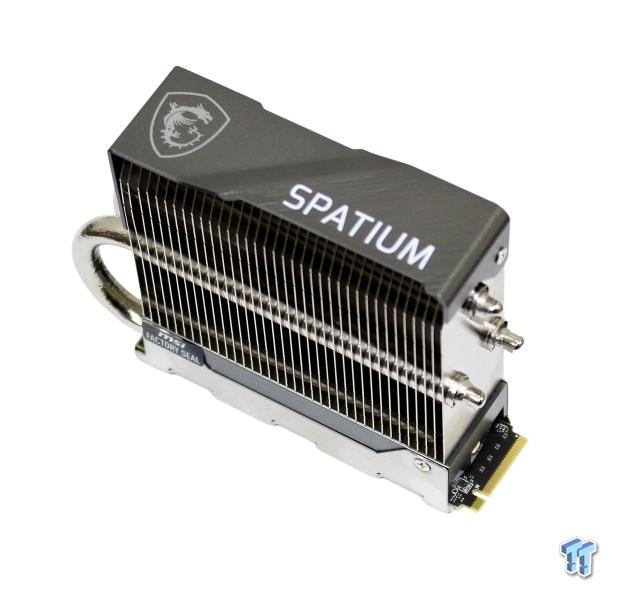
It's as powerful as they come, runs cool at 14,000 MB/s, and, as such, is well deserving of an Editor's Choice award.

